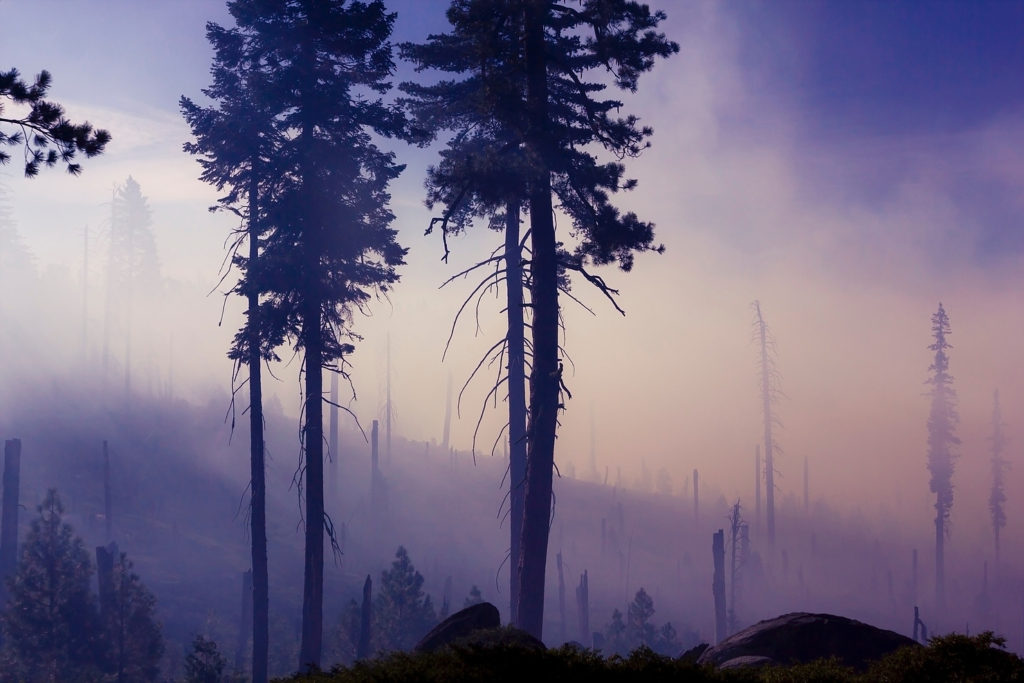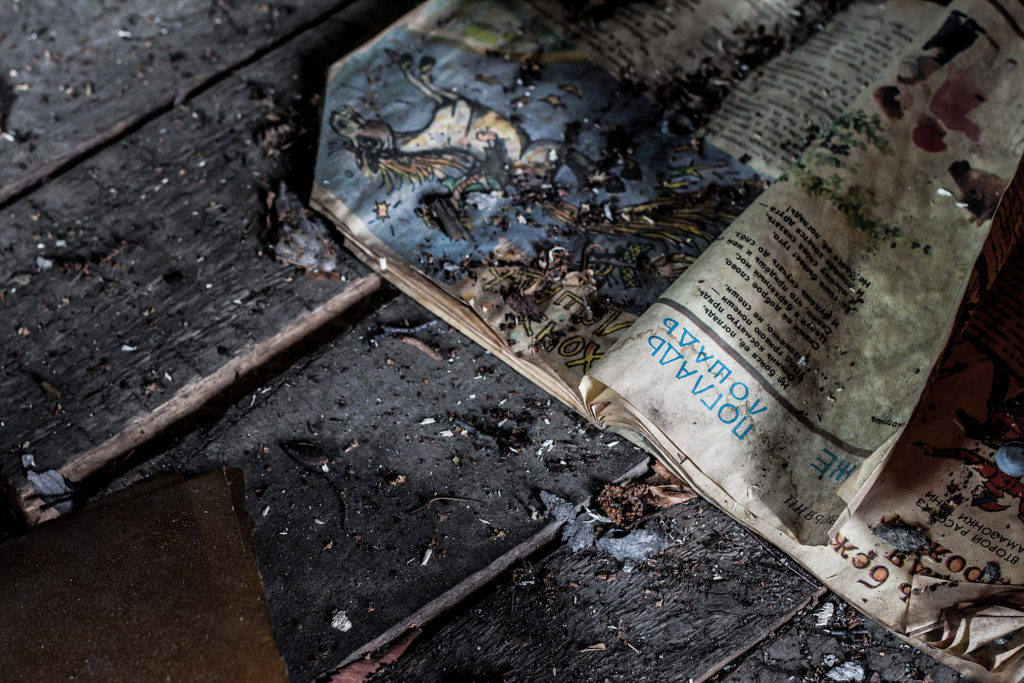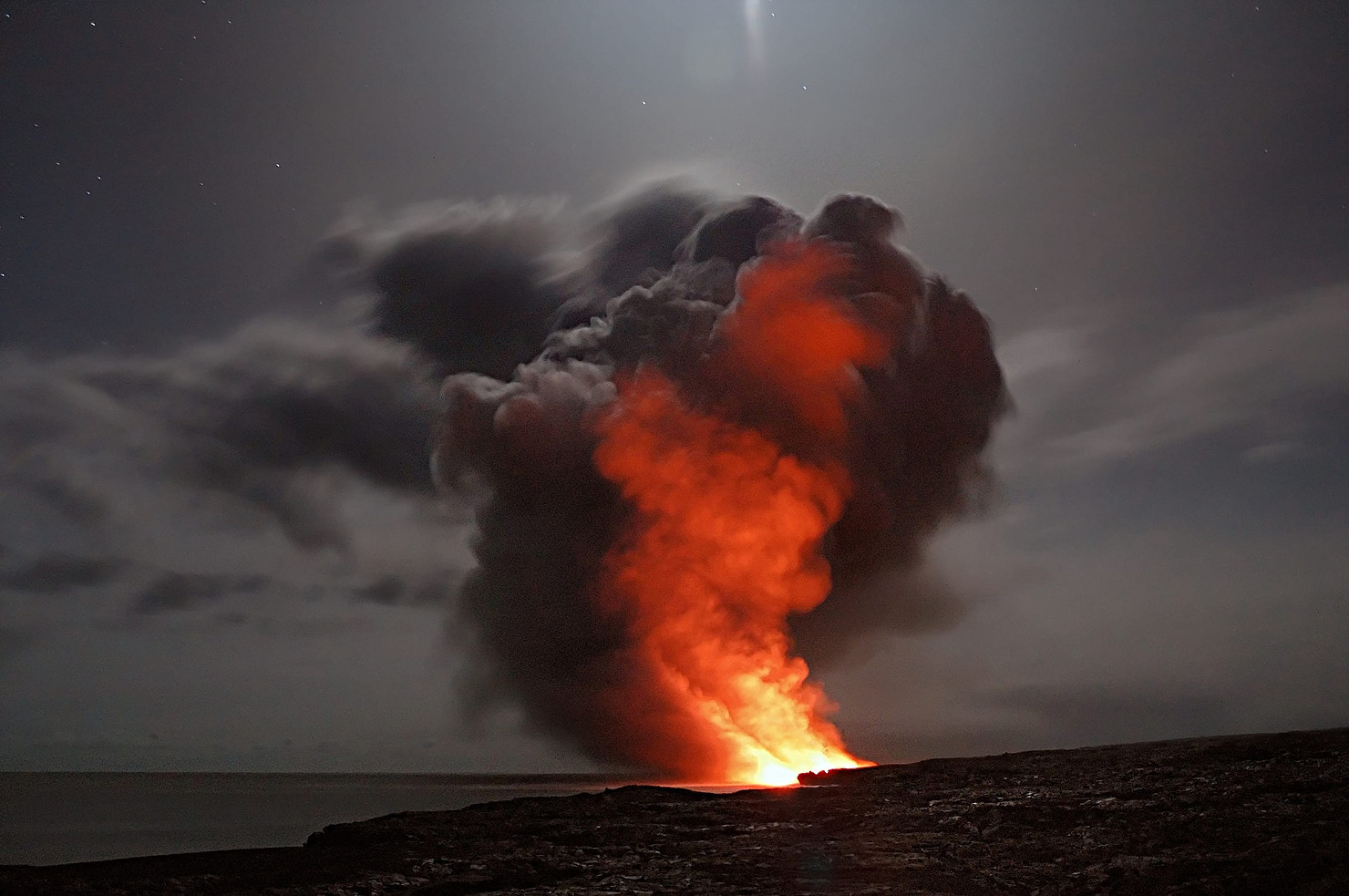Once upon a time, in a land far away, there lived a wise man. The wise man told his tribe that there was a fire coming. No one paid much attention, even though most people knew he was the smartest one in the village. Smoke could be seen in the distance – the wise man explained that it was from the fire that was on its way. Not only did people not seem to care, but many mocked him.
Some time passed, and the people in the tribe started smelling something odd. But soon they got used to it. As the smell became even stronger, they got used to that too. One family in the village began making and selling fragrances to counter the smoky odor. A short time later, the people of the tribe could start to hear the crackling of the fire; the smoke was much closer now. Some people started listening to the wise man – who was telling everyone he could what was going on – but most just laughed at him or ignored him. Some even accused the wise man of making up the fire to gain power, scaring people into compliance. The wise man pleaded with the tribe to do something about the fire: it was only getting bigger and more dangerous, and soon it would be too big to fight. The family selling the fragrances was now doing very well.
Before long the people began seeing the flames in the distance. A few more people started to be so concerned they started pleading and arguing with others, including their own family members. The village had never had its people against one another like this before. Lies were told, truths were told but it was difficult for many to know which was which. Many in the village were certain that God would never let anything happen to them. Some people didn’t care about the flames or the discussions about them at all. Others, like the nighttime hunters, were glad for the flames – they helped them navigate. Many were just too busy gathering enough food for their children to eat to even think about the problem.
The wise man thought of a great way to prove the fire was advancing quickly. He placed a piece of wood with a small hole in it on a post and had people look through it at the fire on the first day of each month. When he started, the fire only took up a small part of the hole. Each month the fire filled up more and more of the hole, and

Ashes started falling on the village, just a tiny amount at first, but soon people were needed to brush the ashes out of the village every morning.
If the fire were to be extinguished, the fragrance making family would see their business hurt. The broom maker would be out of business for sure, there would be enough brooms, shovels and carts left to last hundreds of years. The fanners would have to go back to doing harder work for less. So the fragrance making family, the broom maker, and the fanners, and all the others who didn’t want to change for their own personal gain gave the leaders special things in exchange for continuing to turn a blind eye to the fire. The leaders got the best cuts of meat, the juiciest berries, the best smelling fragrances and around-the-clock fanning services, and just about everything else they desired. Between all these people who were now doing very well with their new job or business, and other members of the tribe who had been always respectful of authority, the leaders continued to have a lot of support.
Much of the water the village needed came from a nearby pond that was between them and the fire. The wise man begged the leaders to have the people get their water from the pond that was in the other direction, but farther away. The leaders didn’t listen to the wise man anymore; he was now considered a loud mouth disruptor who they viewed as trying to cut into their happiness. So the wise man pleaded with the people, and some listened. Some began going to the other pond for their water, which was more work but they believed the wise man. They could see and hear and smell for themselves, they knew the wise man was right. But most of the tribe kept taking the water from the pond that stood between them and the fire because it was more convenient, and with the temperature rising, the need for that water was much greater than before. After a while the pond went dry. It now seemed that the only hope for the village was to get new leadership, and quick, to make an all-out effort to fight the fire. But the wise man was unable to get enough people of the tribe to rise up against the leaders, and the ones still supporting those leaders.

Soon, everyone in the tribe could see the flames undeniably getting bigger and closer. The heat was intensifying and becoming almost intolerable. The smell was now stronger than the fragrances they used. The wise man was right, there was no doubt about it: the fire was coming straight towards them. Many of the tribe’s leaders still turned their backs, eating their meat and berries. The preacher said not to worry, that God would protect them. Some members of the tribe finally admitted they were wrong. Yes, the fire was coming, they said, but it was too late to do anything about it now.
Finally, more than half of the tribe wanted to take action, but they weren’t fighting hard enough against the leaders. The heat from the fire was now stronger, and many people became sick from inhaling the smoke. And still, nothing much was done to stop the fire – just a few people feebly throwing some water in its path. And then, the fire was all around them. The heat and smoke were unbearable. Surely now the tribe would fight the fire… right?
Many years later, a different tribe came across the ashes from the tribe’s village. They found the wise man’s journal buried beneath the ground. They read how the people knew the fire was coming and found excuses to ignore it; that many in the tribe were actually profiting from the effects of the fire and bribing leaders to spread false information. The wise man wrote about how many of the leaders were getting looked after, and so turned their backs on the problem. The last thing the wise man wrote in his journal was, “life is survival of the fittest, and our greed, weakness, and ignorance have proved us unfit for this world –we all are to blame.”
So here we are on Earth with the fire creeping up on us every day. Some are pretending it’s just a scare tactic or a money-making opportunity for the green industry while ignoring all the science. Many feel it could be inconvenient or costly to them personally if real change were to be implemented. And some are capitalizing on it, making money on the back of the slow death of our planet. Will we save our world? Will we do something about climate change? Or will we wait for others do something, while we ourselves only sit around and hope? I’m willing to fight the fire, and others are willing too. Will you join us?
